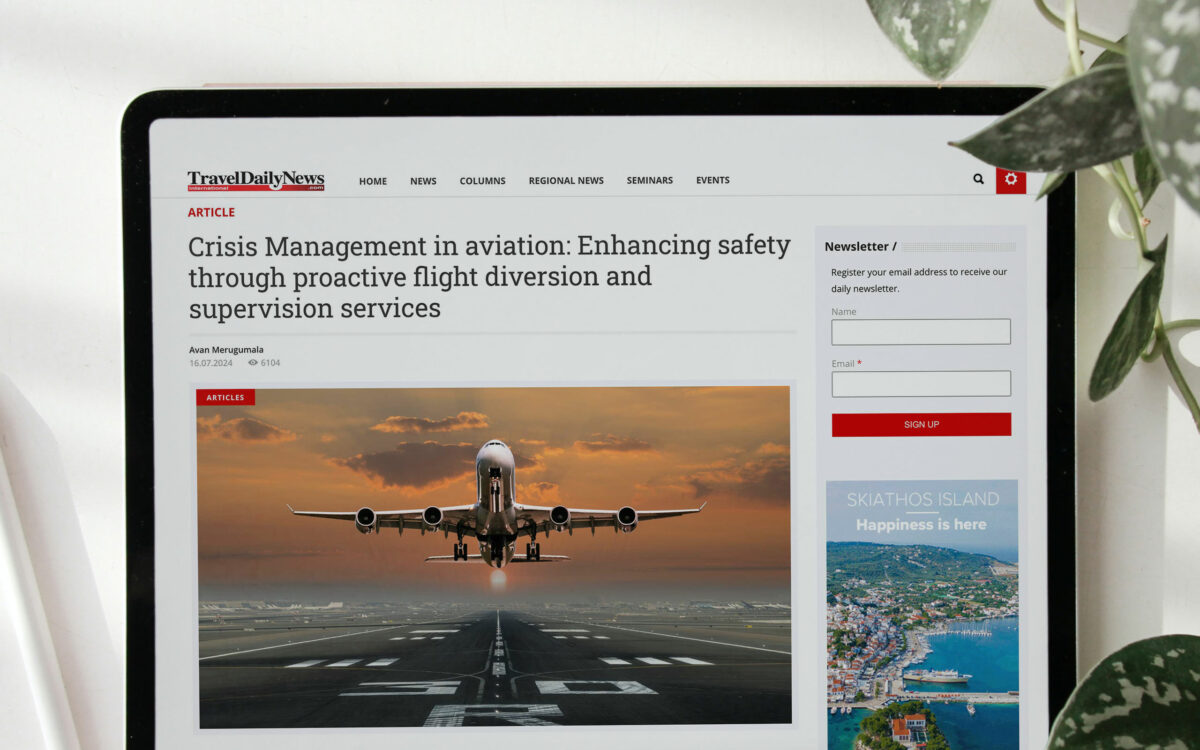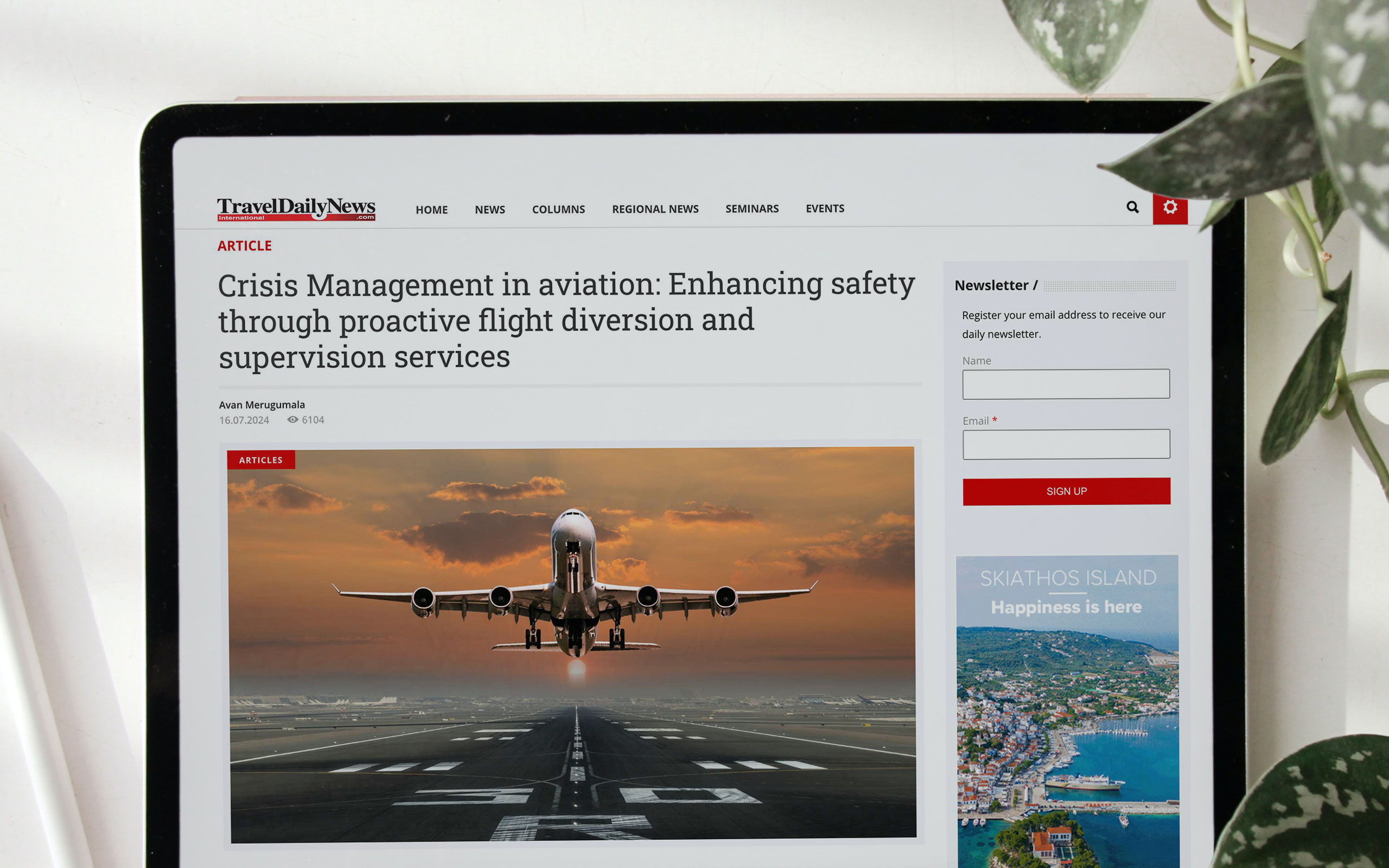Crisis Management in Aviation: Avan Merugumala, Ground Operations Manager at Dubai-based Aviation Services Management (ASM), highlights the crucial role of comprehensive crisis management protocols in the aviation industry. In the high-stakes environment of commercial and private aviation, the ability to react swiftly and coordinate effectively during emergencies can indeed be a matter of life and death.
In aviation, a wide range of crises, such as mechanical failures, extreme weather conditions, medical emergencies, or geopolitical tensions, require immediate and decisive actions. Effective crisis
management not only involves identifying potential risks but also managing real-time emergencies with calm and coordinated responses.
A critical yet often overlooked aspect of crisis management is the dual role of flight diversion and supervision. These components are vital in enabling airlines and operators to protect passengers,
manage emergencies adeptly, and maintain public trust in aviation safety.
Flight Diversion in Action – Crisis Management in Aviation
Flight diversion, which involves rerouting an aircraft to an alternate airport during emergencies, is a cornerstone of crisis management. For instance, the 2009 incident of US Airways Flight 1549, known as the”Miracle on the Hudson,” is a prime example of effective diversion. The pilot’s quick decision-making, supported by rigorous training and preparedness protocols, facilitated a safe landing on the Hudson River, preventing potential disaster in densely populated Manhattan.
ASM Flight Support and Private Charter Services
For inquiries regarding Flight Support, Fuelling and Flight Supervision services at Venice Marco Polo International Airport, kindly contact – sales@asm.aero
To book your private jet travel to Italy with ASM Charter, please contact – charter@asm.aero. Our experts will take care of every aspect of your trip.




















